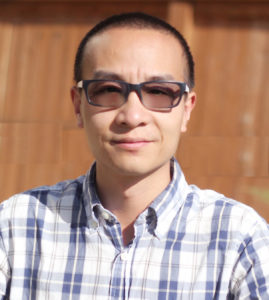
Hang Chang
Computer Staff Scientist
Biological Systems and Engineering
- BioEngineering & BioMedical Sciences
Secondary Affiliation: Molecular Biophysics and Integrated Bioimaging
- Cellular and Tissue Imaging
Building: 977, Room 291
Mail Stop: 977
Phone: (510) 495-2262
HChang@lbl.gov
http://bmihub.org/users/hang-chang
Research Interests
The research interests in my lab are primarily centered at interfaces between engineering, computation and biology. Our current research focus is on knowledge discovery and inference from large scale scientific data with applications to computational biology and biomedical informatics, including,
- Identification of imaging bio-markers towards personalized therapy; and,
- Development of a big data oriented open-source Information Technology (IT) solution for domain adaptive biomedical informatics.



